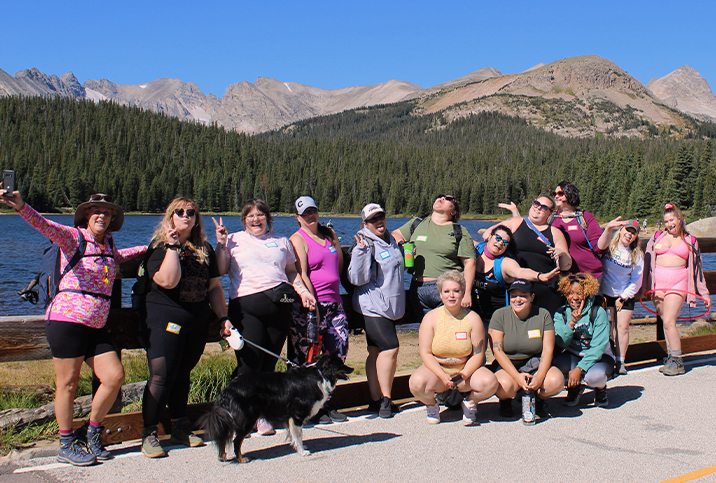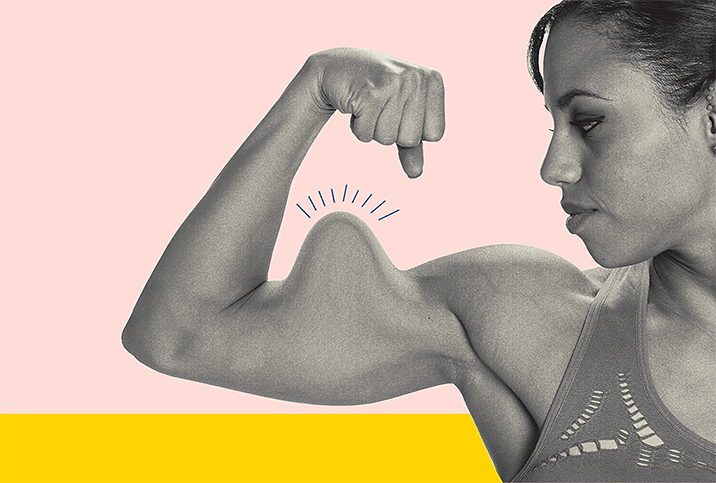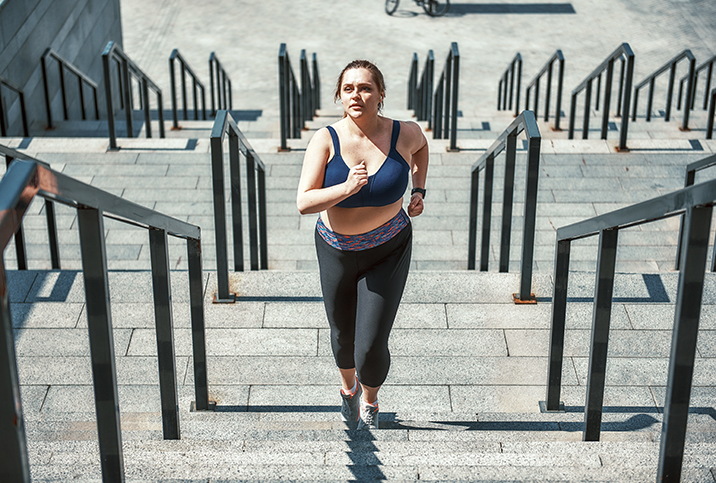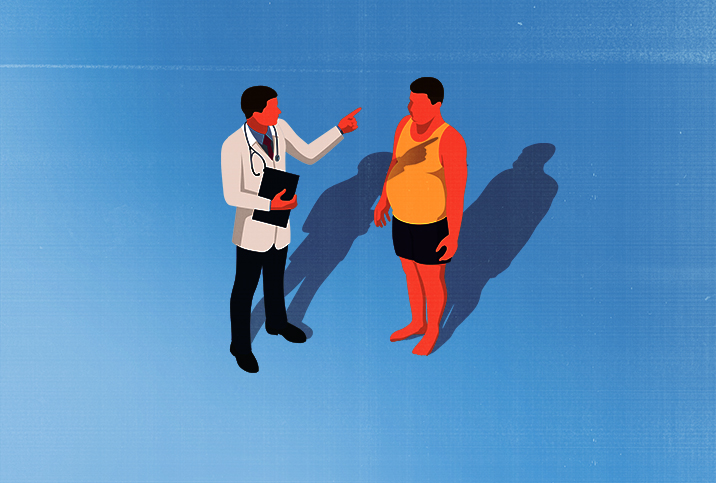Fat Babes in the Wild Advocates Health at Every Size

Rachael Gareri was looking to go on a hike with some company, so she posted in the Facebook group Colorado Girl Gang.
"I just messaged the group, 'Hey, would anyone want to go hiking with me? This is a very low-pressure hike. We're going to stop to smell all the wildflowers while we catch our breath, and we're going to take some hot pics in the moment of ourselves feeling ourselves in nature,'" Gareri said.
Initial responses were overwhelming: Gareri received 160 comments and messages on the first day alone.
"So many people have reached out to me and continue to reach out to me to this day," she said. "They've lived in Colorado for years and have never been in the mountains because they're intimidated. They don't have a friend group to go with them. They don't want to be a burden to their thin-presenting friends when they go on hikes."
The excitement led Gareri to found Fat Babes in the Wild, a hiking group determined to break the stigma of fat people existing in the outdoors.
"A lot of times when you hike with thin-presenting people, they're booking it up these trails because they want to get to the summit as soon as possible," she continued. "That's not what we're about. We're all about enjoying the entire hiking experience. We'll get to the summit eventually, but we're gonna take breaks and enjoy each other's company."
The real need for community
In less than three months, Fat Babes in the Wild has grown to more than 300 members and has garnered media attention, too, including an article on the woman-owned, Denver-based site Ms. Mayhem and a story on KUNC, Northern Colorado's community radio station.
After the radio segment aired, a stage 4 cancer survivor reached out to Gareri. "I was about to change the radio station until I heard you speaking to my soul," the survivor said. "I have been in remission for a few years, and ever since I've gained weight, I've wanted to get back into the mountains, but I just haven't had the confidence to do so. I just started crying because this is exactly what I've been looking for."
The cancer survivor joined the group's third hike at Horsetooth Reservoir, just west of Fort Collins, Colorado, in November. The initial two hikes were at Brainard Lake Recreation Area in Ward, Colorado.
In October, at a pumpkin patch get-together, there were about eight new members. Gareri said she heard more than once: "I heard your interview, and it gave me chills. This is exactly what I need."
"I was like, 'Wow, I can't believe so many people are picking up what I'm laying down. I didn't know it was so needed,'" Gareri said.
Kate Halbur, a friend of Gareri's, has been helping organize the hikes and events.
"Everyone that has joined in-person and online is so supportive, and it turns out there are so many fat babes that are just looking to have fun and not have to think about their size or if they are taking up too much space," Halbur said.
Health at every size
Shira Rosenbluth, a Los Angeles–based licensed clinical social worker and body-positive fashion blogger with about 100,000 followers on Instagram, works with teens and adults struggling with eating disorders and body image issues. Rosenbluth is an advocate of Health at Every Size (HAES), a medical approach that emphasizes healthy behaviors, not weight loss, and addresses weight bias and stigma.
She said she became passionate about HAES because she knows what it's like to have an eating disorder, live in a larger body and be treated differently because of your size.
For Rosenbluth, HAES is about how "every single person, regardless of size, color, gender identity, is worthy of getting safe care from their providers without it being attached to a number on the scale."
"I think the biggest misconception of HAES is that it means health-y at every size," Rosenbluth said. "That's not what it means. It means you can work toward health goals no matter your size, and be treated with respect and dignity on the way."
'Every single person, regardless of size, color, gender identity, is worthy of getting safe care from their providers without it being attached to a number on the scale.'
Halbur said HAES fits into the ethos of Fat Babes in the Wild because the group is about embracing the body you are in. Their mission just happens to include getting outdoors and existing without having to think about your size.
Halbur pointed out that she's fat and works out four to eight times per week.
"I enjoy hiking and trying new activities, but I don't look like the 'traditional' hiker or athlete," Halbur said. "Growing up, I heard a lot of negative talk about fat bodies and had a lot of comments about my body directly. I wish something like HAES was a concept my doctors, parents, coaches, teachers understood when I was growing up."
Gareri said it feels empowering for other hikers to see her and a large group of predominantly fat women on the trails.
"For people to see us existing and knowing, like, 'Hey, don't judge us by how we look on our outside. We're out here with you on these trails and enjoying nature, and we deserve to belong here just as much as you do,'" she said.
Future plans
Gareri would like to do some retreats in the future, including overnight camping trips, "where we're all together for the weekend in the mountains and enjoying some fat fellowship," she explained, adding that she'd like to have a HAES provider lead yoga and guided meditations.
Eventually, Gareri wants to have more chapters of Fat Babes in the Wild throughout the country, but said that it's important the message remains consistent.
"We're anti-diet, anti-fat phobia and [pro] health at every size," she said.
Fat talk isn't tolerated within the group.
"That is not what we're about, and that makes it not a safe environment when you let that creep in," she said. "We have to make sure that everyone is on the same page so sometime in the future we can create more chapters and outline the tenets of what Fat Babes in the Wild is. That is definitely the goal—that Fat Babes in the Wild can exist everywhere."


















